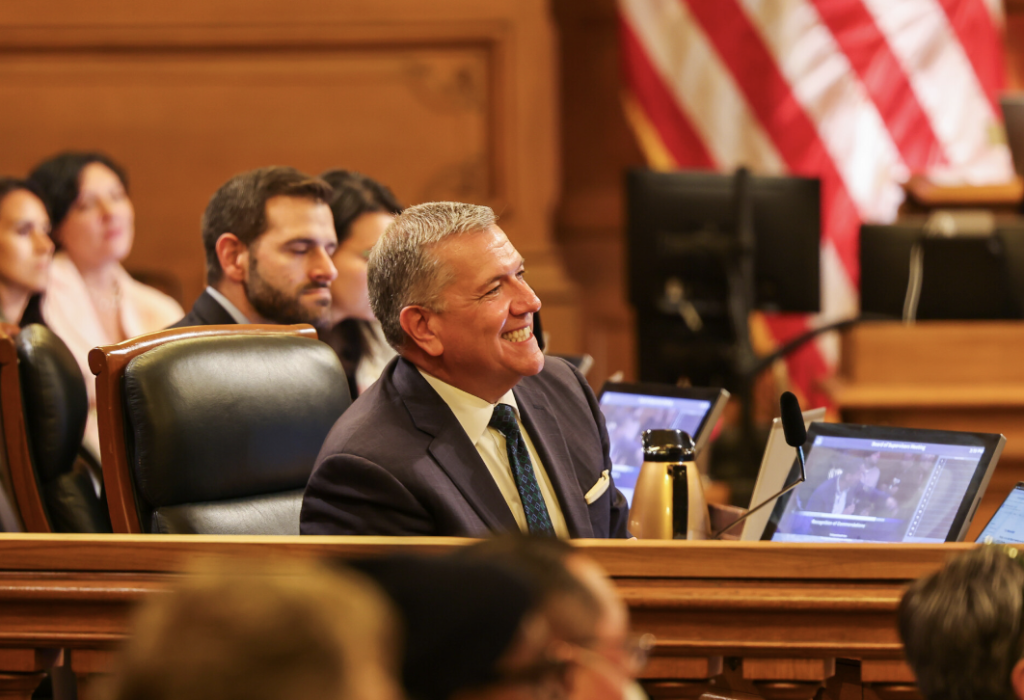Sup. Matt Dorsey is introducing legislation that would bar any city funding for supportive housing that isn’t drug-free.
He said he’s introducing the bill after Gov. Gavin Newsom vetoed a proposal that would have allowed cities to use state money for abstinence-only recovery housing.
Newsom said that the bill wasn’t necessary, since the state already allows sober housing—if participants seek it voluntarily.
California policy for many years has focused on “housing first,” which means getting people off the streets and into permanent, stable living situations even if they are still struggling with substance use.

The idea is simple, and supported by decades of research and data: It’s almost impossible to address addiction issues if you’re living on the streets. Requiring total sobriety as a condition of housing just makes the homeless crisis worse.
As Dorsey freely admits, many people facing addiction issues relapse, and require multiple efforts to reach sobriety. That’s much easier to handle when you have a roof over your head.
But Dorsey, along with Sup. Rafael Mandelman, wants to make sure that city money only goes to supportive housing that is not “drug tolerant.”
From his statement on Twitter:
Today I’m introducing legislation to halt city-funded drug-tolerant models of Permanent Supportive Housing, or PSH, in San Francisco. The legislation will mandate that all city-funded PSH instead be drug-free.
In the process, he is attacking both the movement to decriminalize drugs and the well-established harm-reduction movement, and says his bill will
Move San Francisco past the tired shibboleths of the drug-decriminalization fringe and intransigent nonprofit heads who insist that “Housing First” persist as the increasingly deadly, one-size-fits-all, 100 percent drug-tolerant experiment it was NEVER intended to be.
Dorsey told me that state-funded supportive housing units will still be under the Housing First policy, but that some 30 percent of the supportive housing in San Francisco is locally funded and would fall under his bill.
That means about 3,700 units would not be available to people who didn’t immediately accept sober living as a condition to getting off the streets. (Dorsey’s proposal suggests that some units might allow alcohol and cannabis, but not illegal drugs, which is going to be very hard to enforce. Also: the difference between deadly/addictive and legal is a pretty fuzzy line; tobacco kills far, far more people every year than fentanyl.)
Dorsey told me that the federal government, which generally has supported Housing First, gives some advice on Recovery Housing, and send me a policy statement. It’s interesting:
Although this Policy Brief focuses on Recovery Housing, it is important to note that research has found that housing models that are operated with Housing First practices have demonstrated their effectiveness in achieving housing stability for people with serious mental illnesses, and for those who have experienced chronic homelessness including many with active substance abuse disorders. Because of that strong evidence,
HUD is encouraging communities to continue to expand the supply of housing models, including permanent supportive housing, that embrace Housing First and that use harm reduction practices, and HUD continues to place a policy priority on such practices.
It notes:
HUD also recognizes the importance of providing individual choice to support various paths towards recovery. Some people pursuing recovery from addiction express a preference for an abstinence-focused residential or housing program where they can live among and be supported by a community of peers who are also focused on pursuing recovery from addiction–environments that are provided by Recovery Housing programs. However, supporting individual choice must also mean that a community is ensuring that housing options are available for people at all stages of recovery, including people who continue to use drugs or alcohol. HUD is emphasizing that unless court ordered, CoC Program-funded projects should not require any homeless person to enter Recovery Housing or be offered or provided this type of program as the only housing option, but rather should offer them choices.
Recovery Housing might not be in conflict with this approach so long as entry into the program is based on the choice of the program participant.
Fair enough: Some people may seek and prefer recovery housing that mandates abstinence.
The problem here is that the city has a massive shortage of permanent supportive housing. So if you take 3,700 units out of the Housing First mix, you potentially leave a lot of people, including a lot of people suffering from addiction, on the streets.
Dorsey is not seeking to raise additional money (say, from taxes on the rich) to fund new recovery housing; he wants to set mandates on existing city funding that defy the state, and the (pre-Trump) federal government’s longtime Housing First approach.
The legislation will soon hit its first supes committee, and I suspect a good number of nonprofit leaders and public health professionals will have concerns.







